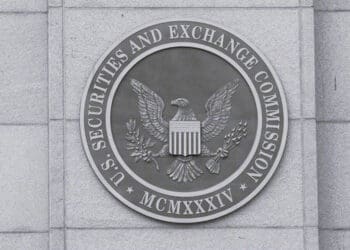“Resources Reflect Policy” and Other Observations
Michael Volkov discusses themes emerging in the DOJ’s and SEC’s enforcement of FCPA violations thus far in 2018.
There are two distinct themes in FCPA enforcement: The first is consistency (i.e., that some enforcement actions are relatively consistent across the board), and, in the last five to 10 years, the FCPA caseload has been fairly steady; the second is variability, meaning that new policies have an impact on FCPA enforcement. Some minor and some major. All of this may be another in my series of profound grasps of the obvious.
While many have criticized the Justice Department and the SEC over their FCPA enforcement practices, a closer look shows that the most significant impact continues to be allocation of resources. The DOJ and SEC have devoted significant resources to increase the number of attorneys assigned to the FCPA Units of the DOJ and SEC, including leveraging attorneys in U.S. Attorneys’ Offices and SEC attorneys in SEC field offices. The dedication of three FBI squads has an impact as well.
When the government allocates personnel, the attorneys and agents are expected to perform – to open investigations and prosecute cases. Case numbers ebb and flow each year; some years have more and some fewer. Significantly, the number of cases brought each calendar year really does not reflect the amount of work completed by the DOJ and SEC – the investigations continue at their own pace and are not tied to any calendar-year requirements (except when we observed the completion of a number of cases at the end of the Obama Administration).
To make myself clear, there has been no significant change in FCPA enforcement during the Trump administration or, to say it another way, resources always reflect policy. The current administration is no different than any other when it comes to FCPA enforcement. If changes were to occur, the administration would have to reallocate resources or make a significant policy shift, which no one expects to occur. So, call it what you will, FCPA enforcement is here to stay for the foreseeable future.
A second observation relates to the assignment of corporate monitors in FCPA cases. In 2016, FCPA enforcement hit a highwater mark and corporate monitors were assigned in eight separate cases. This year, we have only had one corporate monitor assigned, which was in the Panasonic enforcement action. To replace this requirement, the DOJ and SEC have pushed specific periodic review and reporting requirements. Whether this is a good or a bad idea depends on how much scrutiny the DOJ and SEC devote to review of the report. If such reports are not carefully reviewed and questioned, the self-reporting requirement is unlikely to have any significant impact; on the other hand, if the DOJ reviews and questions the company’s report, the DOJ and SEC can advance corporate accountability.
Another important area is the impact of the Yates Memorandum. There is no question that the DOJ’s commitment to the Yates Memorandum has increased overall its enforcement against individual actors, particularly in the auto safety and emissions fraud prosecutions. In the FCPA enforcement area, we have seen a “new” trend in the use of non-FCPA charges, such as money laundering, against recipients of foreign bribes. As for “traditional” FCPA prosecutions of individuals, so far, six individuals have been charged in 2018.
Finally (and perhaps most significantly), the DOJ and SEC have raised their expectations with regard to corporate remediation efforts as part of an overall FCPA settlement. The DOJ and SEC hold companies accountable for imposing strict and aggressive discipline of officers and employees responsible for misconduct, stretching to supervisors who failed to hold employees accountable or who otherwise failed to investigate potential misconduct by staff members. Companies have to exercise a robust disciplinary response, including senior officers, or face the prospect of negligible credit for remediation. Even those companies that have designed and implemented effective ethics and compliance programs may earn negligible credit if they do not exact proper disciplinary actions against employees who engage in misconduct.
This article was republished with permission from Michael Volkov’s blog, Corruption, Crime & Compliance.



 Michael Volkov is the CEO of The Volkov Law Group LLC, where he provides compliance, internal investigation and white collar defense services. He can be reached at
Michael Volkov is the CEO of The Volkov Law Group LLC, where he provides compliance, internal investigation and white collar defense services. He can be reached at 






